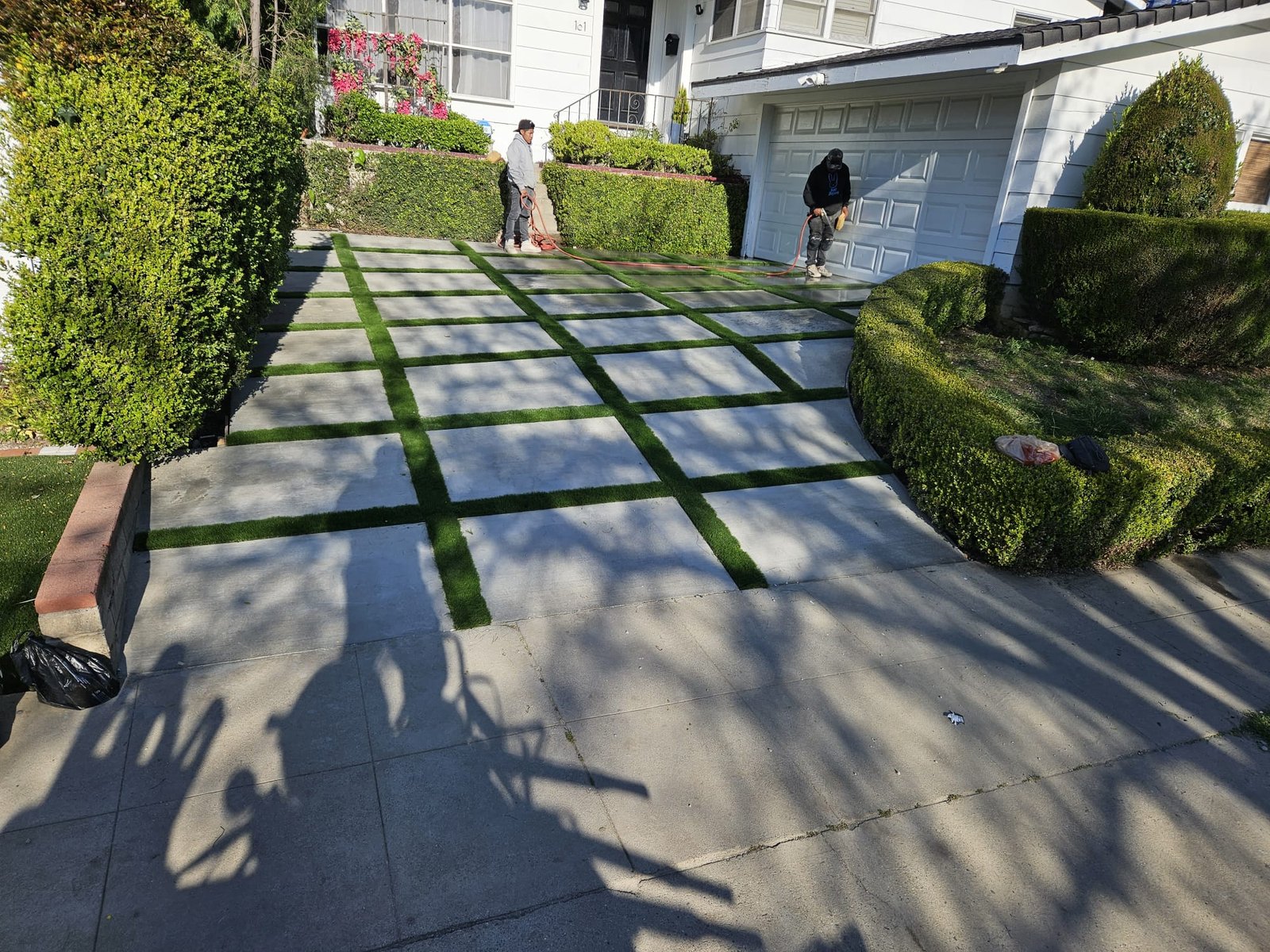Driveway Pavers Key Takeaways
- Understand the variety of pavers available and their applications for enhancing outdoor spaces.
- Learn about the specific benefits and considerations for each type of paver material.
- Explore the best paver choices for outdoor projects like driveways, walkways, and patios.
Pavers are a fundamental element in landscape design, offering functionality and aesthetic appeal to outdoor areas. These versatile materials are utilized for constructing everything from driveways to patios, providing durability and a range of stylistic options to fit any environment.
Definition of Driveway Pavers and Their Uses for Outdoor Flooring
Pavers refer to the slabs and blocks made from concrete, stone, and clay used to create outdoor flooring. These elements are prized for their strength and versatility, accommodating many outdoor applications. From constructing elegant walkways to durable driveways and serene patios, pavers serve both functional and decorative purposes. They offer a durable surface that can withstand heavy foot traffic and diverse weather conditions, making them an ideal choice for outdoor flooring.
Importance of Choosing the Right Type of Paver for Different Outdoor Projects
Choosing the right type of paver is essential to guarantee the durability and functionality of your outdoor area. Different materials offer unique benefits and may better suit specific climates and uses. Factors such as durability, maintenance needs, and aesthetic preferences play significant roles in this decision-making process. Understanding these aspects will help you choose pavers that meet your practical requirements and enhance your landscape’s visual appeal.
Types of Driveway Pavers by Material
Concrete Pavers
Concrete pavers are favored for their cost-effectiveness and flexible design options. They come in various colors and styles, making them adaptable to various design schemes.
Brick Pavers
Brick pavers offer a classic aesthetic and considerable durability, ideal for walkways and patios where a traditional look is desired.
Limestone Pavers
Limestone provides a natural, earthy charm and is typically used in more formal and elegant spaces due to its fine texture and consistent coloration.
Flagstone Pavers
Flagstone is known for its natural, rustic appearance, making it suitable for creating pathways or patios with a more organic feel.
Bluestone Slabs
Bluestone slabs are durable and have a unique blue-gray shade that stands out in outdoor installations.
Marble Slabs
Marble offers a touch of luxury with its distinctive veined patterns and is best used in areas where aesthetic appeal is a priority.
Travertine Pavers
Travertine is popular for pool surrounds due to its non-slip surface and heat resistance.
Porcelain Tile Pavers
Porcelain tiles are hard-wearing and available in many designs, capable of mimicking natural stone or wood.
Cobblestone Pavers
Cobblestone provides a high-end, vintage look that is perfect for driveways or pathways that require a durable yet decorative surface.
Rubber Pavers
Rubber pavers are safe and comfortable underfoot, ideal for areas where children play.
Gravel
Gravel is an economical and easy-to-install option that is suitable for lower-traffic areas.
Granite Pavers
Granite is one of the hardest materials available, known for its strength and resistance to abrasion.
Plastic Pavers
Plastic pavers, often made from recycled materials, offer a lightweight and environmentally friendly alternative.
Advantages and Considerations for Each Type
Each type of paver material comes with its advantages and considerations. For instance, concrete pavers are notably durable and available in a wide array of designs. However, they may require regular sealing to maintain their color and resist weathering. Natural stone choices such as marble and granite offer distinct visual appeal. However, they typically incur higher expenses and demand more rigorous maintenance.
Different Styles of Pavers
Interlocking Pavers
These pavers lock together to form a strong bond, which is ideal for driveways and areas with heavy traffic.
Tumbled Pavers
Tumbled pavers have a worn, natural appearance, suitable for creating a vintage or rustic look.
Textured Pavers
Textured pavers have a non-slip surface, making them perfect for pool surrounds and outdoor areas exposed to water.
Smooth Pavers
Smooth pavers offer a clean, modern look, ideal for contemporary landscape designs.
Choosing the Right Driveway Pavers for Different Outdoor Projects
Driveways
Brick, cobblestone, and concrete pavers are outstanding options for driveways, prized for their robustness and capacity to support vehicular weight.
Walkways
Concrete, brick, flagstone, granite, and travertine pavers are ideal for walkways, providing durability and aesthetic versatility.
Patios
Concrete pavers are particularly popular for patios as they balance aesthetics, cost-effectiveness, and durability.
Conclusion
Choosing suitable driveway pavers for your outdoor projects is essential for ensuring that your investment meets your aesthetic vision and stands the test of time. With many materials to choose from, each with its benefits and considerations, careful selection and expert advice are paramount. Whether renovating a driveway, designing a new patio, or laying a garden path, understanding the different types of pavers and their specific advantages will guide you in creating a functional and beautiful outdoor space.


